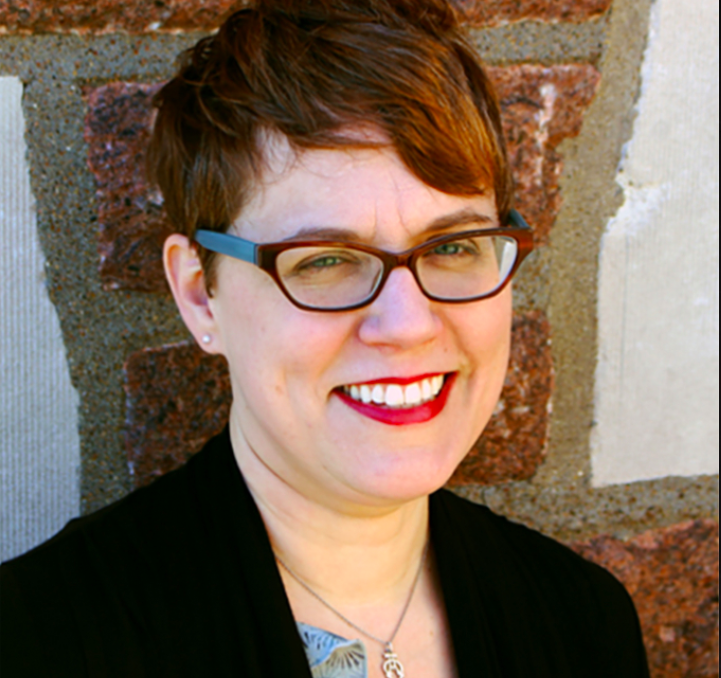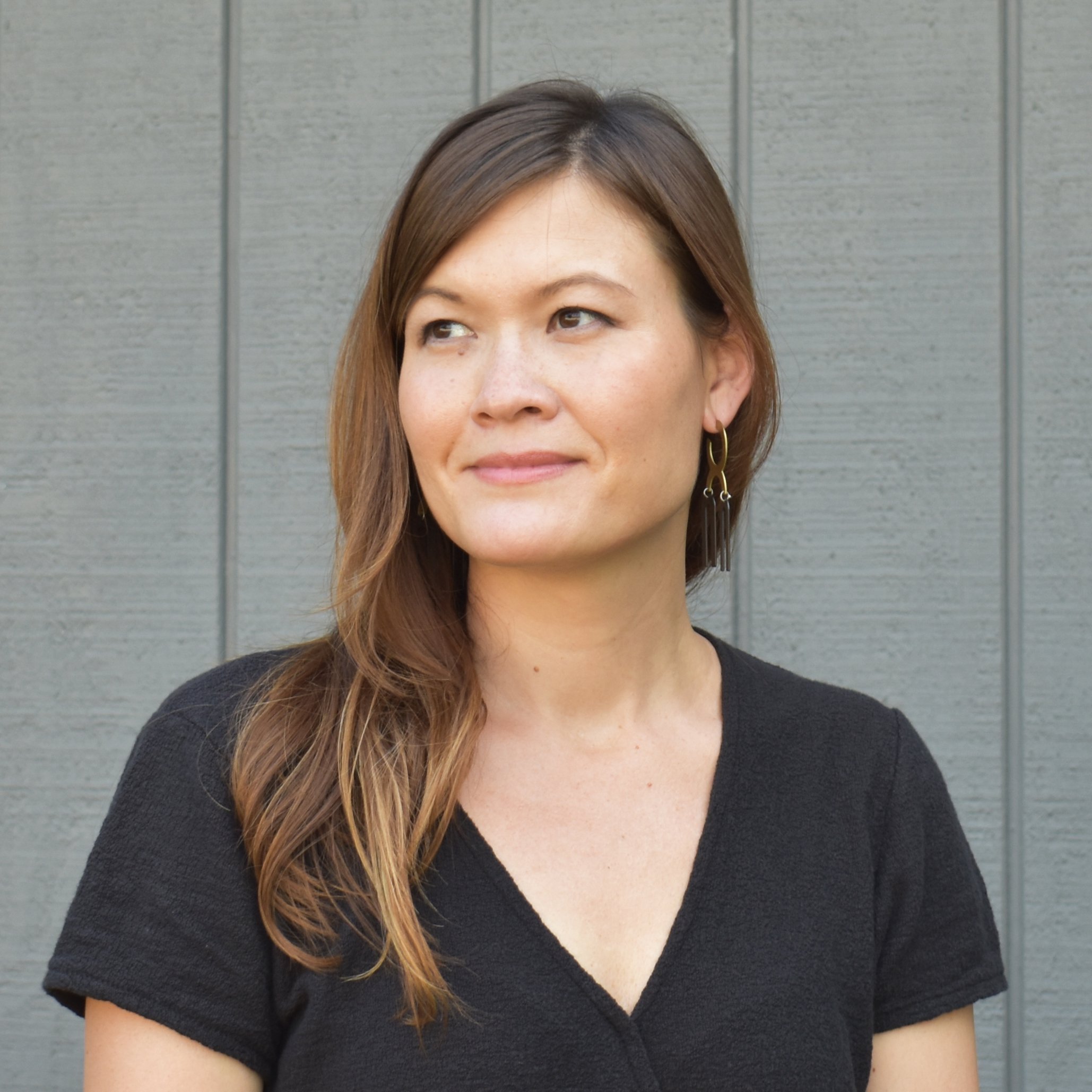
Contributors
Project leads
Assistant Professor in the Sam Fox School of Design + Visual Arts; Assistant Vice Provost for Assessment
Heidi Aronson Kolk is a cultural historian who began academic life as a visual artist and poet, and pursued graduate study in literary and culture studies. Her research explores the politics and practices of memory in the United States, and engages creatively with the history and landscape of the American city. In this work she is especially attentive to issues of race and urban identity, disputes over public history and memory, and concepts of materiality and trauma. Her book Taking Possession: The Politics of Memory in a St. Louis Town House (2019, UMass Press) engages many of these themes, as does The Material World of Modern Segregation: St. Louis in the Long Era of Ferguson (2022, The Common Reader), a volume she co-edited with Iver Bernstein.
Beauty in Enormous Bleakness draws upon Kolk’s recent work on “negative heritage”—an under-theorized domain that includes material sites associated with shameful, problematic histories, or what are colloquially called “dark” episodes in the national past. These include the “camps” where Japanese Americans were “detained” during WWII—that is, places of forcible relocation, and mass incarceration, whose inherent violence has been (willfully) “forgotten,” disavowed, downplayed, if not actively denied or repressed. They also include “everyday” locations—places where the loss, survival, memory, and creativity of the interned were recorded, and whose significance might yet be reclaimed. Prior to pursuing these intellectual questions at WUSTL, in the early 2000s, Kolk worked for Richard Henmi at Henmi & Associates, where she was fortunate to hear Henmi’s accounts of his incarceration at Jerome Relocation Center, his time at WUSTL, his service as a U.S. Army GI, and his long career as a St. Louis-based architect responsible for many of the most recognized and beloved mid-century buildings in the region.
Assistant Professor, College of Architecture and Graduate School of Architecture and Urban Design
Kelley Van Dyck Murphy is an assistant professor of Architecture at the Sam Fox School of Design & Visual Arts at Washington University in St. Louis and the co-director of Van Dyck Murphy Studio. The practice seeks to create new relationships between people, materials, and space by coupling place with material systems and craft. Situated between architectural design, urban intervention, and cultural storytelling, the work merges architectural and artistic modes of thinking and engages in projects that range in scale from objects to environments. Murphy has been awarded grants from Washington University, the Mellon Funded Divided Cities Initiative, the Regional Arts Commission of St. Louis, the Downtown St. Louis Public Arts Initiative, and the Ann Arbor Arts Commission.
Beauty In Enormous Bleakness: The Design Legacy of the Interned Generation of Japanese Americans builds upon Murphy’s formal research on materiality, identity, and architecture as a form of cultural storytelling. The project is of personal interest to Murphy, who, as a young architect, had the privilege of working with Gyo Obata at HOK and has come to know architect Rod Henmi (son of Richard Henmi) as a mentor. Recently, Murphy has been teaching a series of case study courses focused on the lives and work of Japanese American architects and their contributions to the post-war architectural landscape in the United States.
Associate Professor of Professional Practice; Principal and Co-founder, aardvarchitecture
Lynnette Widder is Associate Professor in Sustainability Management at Columbia University. Her work on Japanese American architect Kaneji Domoto includes curation of three exhibitions in New York City, Purchase, and Atlanta as well as an award-winning renovation of Domoto's 1949-50 Lurie House. She is the author of Year Zero to Economic Miracle: Hans Schwippert and Sept Ruf in Postwar West German Building Culture (ETH Honggerberg, 2022) and co-authored Architecture Live Projects: Pedagogy into Practice (Routledge, 2014) and Ira Rakatansky: As Modern as Tomorrow (William Stout, 2010). Her writing has appeared in Daidalos, Bauwelt, Architecture, Manifest, Kritische Berichte, the Journal of Industrial Ecology, and The Social Science Journal. She has received funding from the Mellon Foundation, the AIA New York Center for Architecture, the Graham Foundation, the German Academic Exchange (DAAD), Fulbright, and the UN Development Programme in Guinea; and has held fellowships from the Institute for Ideas and Imagination in Paris and MacDowell. Her design work with aardvarchitecture has been published in the US, Europe, China and Australia.
Project Assistant
Gabriela Naomi Caden Senno
Gabriela Naomi Caden Senno is a fourth-generation Japanese American and Spring 2022 graduate of Washington University in St. Louis, where she received a Bachelor’s of Arts in American Culture Studies (Concentration in Race and Ethnicity in American Life) and Global Cultural Studies. As a descendent of first and second-generation Japanese Americans incarcerated at Sand Island Detention Center (HI), Jerome Relocation Center (AR), and Gila River Relocation Center (AZ) during the Japanese Incarceration of WWII, Senno is dedicated to creating both academic and public scholarship related to the Incarceration and its ongoing legacy, with a particular focus on Japanese American visual culture.
At Washington University, Senno completed a thesis in the American Culture Studies Department with the support of the Mellon Mays Undergraduate Research Fellowship Program about artist Chiura Obata and his sumi-e (ink) paintings created during the period of his incarceration at Tanforan Assembly Center (CA) and Topaz Relocation Center (UT). Additionally, Senno contributed to the John B. Olin Library Exhibition Chiura Obata, an Artist Behind Barbed Wire: 80 Years After the Incarceration, which was on view from May 28, 2022 to September 4, 2022. Senno’s research interests include the WWII Incarceration of Japanese Americans, Japanese American art and craft, and memory studies. Currently, Senno is the Project Assistant for Beauty in Enormous Bleakness and hopes to begin a Ph.D. program in American Studies or Art History during Fall 2023.
Other project assistants
Toni Aguilar-Rosenthal
Additional Contributors
Design Assistants: Danielle Ridolfi & Makio Yamamoto
Project Consultants: Rod Henmi, Kiku Obata, & Robin Hattori
Beauty in Enormous Bleakness has also consulted with and interviewed (or will interview) several experts local to St. Louis and the surrounding county.



